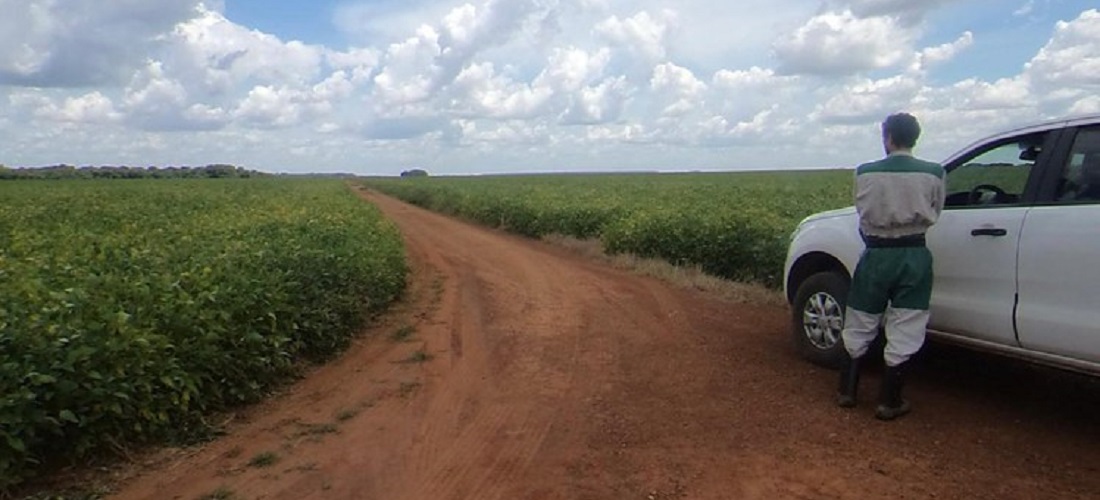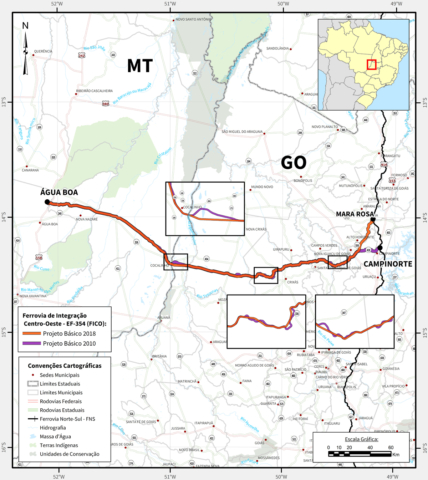
Valec granted license to build Midwest Integration Railway (FICO)
Sep, 30, 2020 Posted by Ruth HollardWeek 202040
On Tuesday, September 29, the Brazilian Environment and Renewable Natural Resources Institute (IBAMA) granted Valec a license to build a railway between Mara Rosa, GO, and Água Boa, MT which are part of the Central-West Integration Railway (FICO) works. With that, the works – from an environmental point of view – are ready to begin next year.
The 383-km stretch will connect the Araguaia Valley, a productive and developing region of Mato Grosso, with the North-South Railway, favoring the flow of the harvest to the ports of Santos (SP), Itaqui (MA), and, in the future, Ilhéus. In total, the project will have works undertaken in 12 municipalities which will be carried out by Vale, through cross-investments, beginning with the granting of the advance extension of the Vitória-Minas Railway (EFVM) contract. The estimate is that R$ 2.73 billion will be invested in the works.
IBAMA has established a series of demands in their Basic Environmental Plan, which includes programs aimed at flora, fauna, solid waste management, monitoring of water quality, compensatory planting, and fire prevention, to name a few.
Railway projects
The Inter-American Development Bank (IDB) and the Ministry of Infrastructure (MINFRA) signed a technical cooperation agreement to support the development of railway projects. Instruments for the preliminary analysis of projects will be developed in order to stimulate the optimization and improvements in the rail transport system. With the modernization of assets, it is hoped to attract even more investors’ attention.
US$ 450,000 will be disbursed for the initiative, which also involves analyzing alternative financial instruments to promote greenfield infrastructure railway projects (those that do not have pre-existing structures) and brownfield (projects that add to something already existing and may involve the renovation or demolition of structures). In addition, it will analyze existing demand studies and risk assessment for the socioeconomic sustainability of existing systems, impact studies of rail freight or passenger projects, review of federal regulations, and workshops and events to promote the exchange of experiences.
-
Grains
Aug, 08, 2022
0
Two more grain ships sail from Ukraine as third port opens
-
Other Cargo
Jan, 31, 2022
0
Cookies and bread: Brazilian exports grow 25% in 2021
-
Trade Regulations
Dec, 26, 2022
0
Brazil votes to extend import tax reduction on medicines and food items
-
Ports and Terminals
Aug, 25, 2022
0
Port of Suape inks cooperation agreement with Panama Maritime Authority



